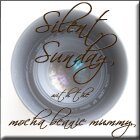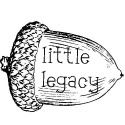The short answer is no. It is a bit of a running joke amongst live-aboard boaters that this is the most common question that people will ask. However, it may well be a question that you need to ask when you are looking for a boat to buy on the Grand Union canal in London or Hertfordshire. The longer answer is that it depends on your heating. Many boats and narrowboats for sale on the inland waterways are heated with a solid fuel stove. This burns coal or wood and a narrow steel boat can get very hot when the home fire is burning – enough to need opening the window in mid-winter! The advantages of burning solid fuel include a choice of coal or logs as fuel, and the romance of cosy nights in front of the amber glow of real flames. I've had casseroles and mulled wine simmering away on top of mine. The downside to solid fuel is that the fire can sometimes die down to an ember overnight making the mornings a little chilly. You will need to re-black the stove from time to time and sweep the flue regularly.
 |
| Solid fuel stove |
When I was pregnant with our first child we invested in a diesel stove. It runs off red diesel from the engine tank and maintains a constant heat. It may not seem as cosy and romantic as a real burning fire but some models have an imitation coal flame effect. You can leave the stove safely burning all night while you sleep, and all day when you're out at work. They can, however be a bit of a pain to clean.
Narrowboats can also have a variety of panel or fin radiators which circulate hot water. Alternatively they may be heated with warm air ducting. They either run on diesel, or run off the existing diesel stove or from propane gas bottles. Some systems are electrically controlled so you will need to make sure your batteries are in good condition and regularly charged. Some central heating systems take up very little space but the diesel systems sometimes have noisy exhausts, or electric pumps which can be disturbing at night.
On 1st November 2008 The EU Energy Products Directive stipulated that the full rate of duty should be applied to fuel used for “the purposes of navigation” of private pleasure craft. However, boaters can declare at the time of purchase what percentage of the fuel will be used for domestic heating, and this fuel will be sold to the boater tax free.
Diesel can be purchased at marinas and boat yards, and also from working boats who travel the waterways selling a variety of fuels. Working boats will often sell coal, smokeless fuel, diesel, propane gas bottles and other useful products such as kindling or chemical fluid for the toilet.
Both diesel and solid fuel stoves can be adapted to include a back boiler which may heat the radiators and the domestic hot water. On a live-aboard boat you may like to have more than one heating system, for example a solid fuel stove and a radiator system. However, when you're looking at boats for sale remember that most boats can be adapted to suit your requirements.
Have a look at Boatshed Grand Union to see several different types of heating on the boats for sale that are suitable for living aboard. There are up to 80 photos of each boat so you can get a good look at the options available. The real answer is that it is cosy on board in winter, and perhaps this winter it will be you snuggled up on board eating casserole with mulled wine warming on the stove!
 |
| Casserole image credit |
Already have a narrowboat? Are you often being asked, Is it Cold in Winter? Contact Boat-Wife for a free postcard sized magnet to display on your boat. It is a small advert for this blog.
Visit Become a Mumpreneur for free eCourses and more.


























